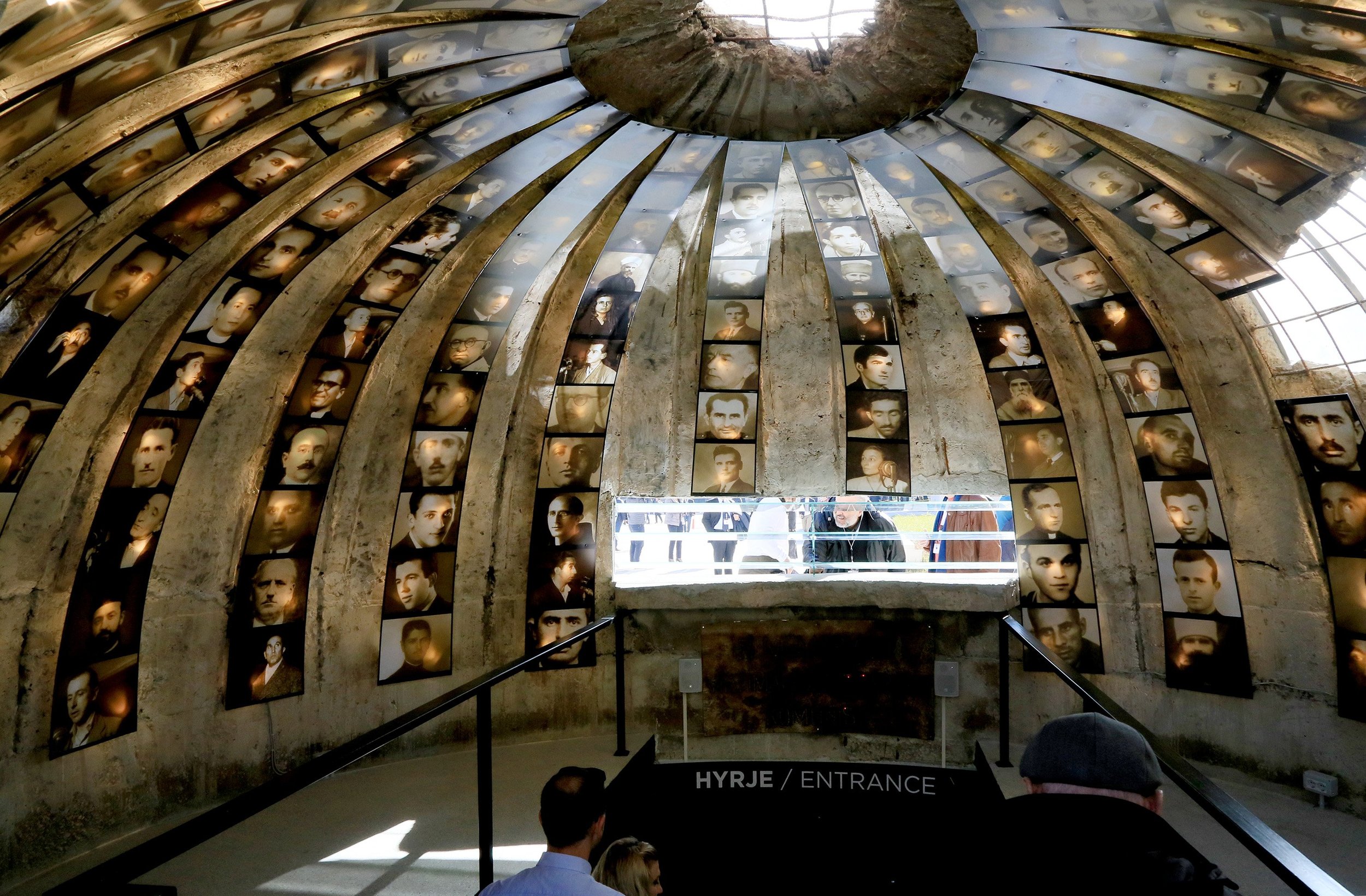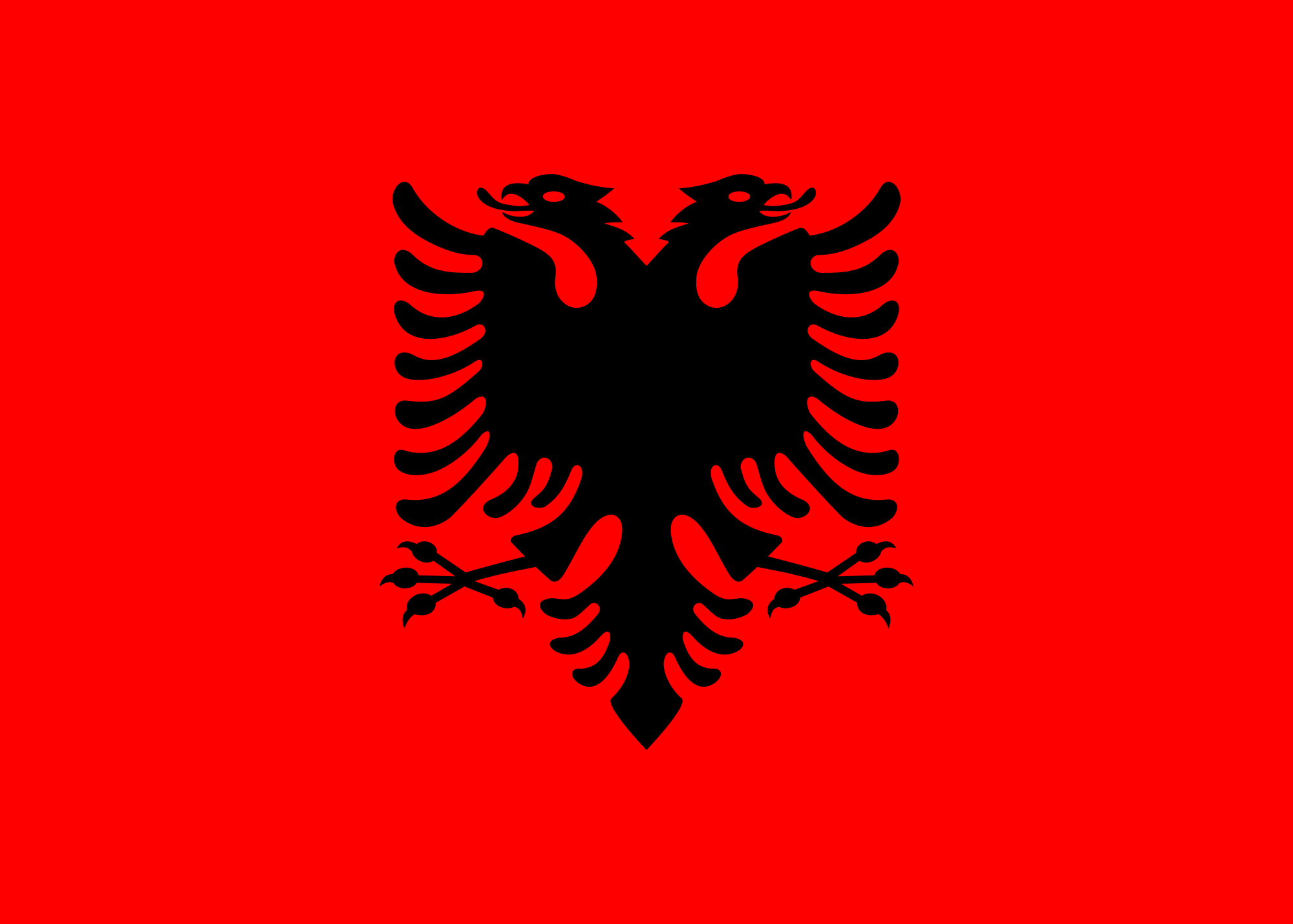
Albania - 63.68
63
Rapidly falling into the pitfalls of the developing world
Albania is a country altogether unlike most of its ex-Eastern Bloc contemporaries. Enver Hoxha, the Stalin-fanatic dictator of Albania for nearly four decades from 1944-1985 was an international pariah after Stalin’s death. This resulted in extreme paranoia in the government, as for several decades Albania truly had no allies. However, nearly four decades have passed since Hoxha’s death, and much has changed in Albania. It is now a NATO-member state and a bona fide Western ally. Stalin-fanaticism has been traded for an almost hero worship of America. Albania is well on the way to becoming a truly first-world country, especially with current plans for EU ascension. However, developing world issues remain. What is ostensibly one of the freest and most democratic governments in the Balkans still makes attempts to suppress dissenters. Political factionalism is rampant, often hampering development and scaring away Strasbourg. Corruption is some of the highest in Europe, undercut only by Ukraine, Russia, and Transnistria (which is debatably even a country at all). Albania is not a country without issues, but its future is bright so long as governments with the people’s best intentions stay in power.
Human Rights - 68
Albania has fully abolished the death penalty. Domestic violence is common and socially acceptable in Albania, with police consistently turning a blind eye. At the start of the COVID pandemic, the government made repeated threats to shut down media outlets for “spreading panic” about COVID. However, the government has recently repealed an anti-defamation law that limited speech on social media platforms. Roma were frequently left out of COVID-related financial aid. Roma generally face discrimination all over the country but especially in education and Roma children are often denied admittance to schools. Parliament is attempting to rectify or repeal potentially unenforced laws. Trans Albanians cannot serve openly. Albania does not recognize same-sex couples. Abortion is legal to twelve weeks with parental notification where applicable.
Democracy - 73
The president is chosen by parliament, and the prime minister (who holds most executive authority) is the leader of the majority coalition. Parliament is directly elected. Elections are generally free and fair but are subject to delays and boycotts. Many parties participate in elections that do not meet minimum requirements. Albania is under a de facto two-party system but party formation and participation is not restricted. Many smaller parties hold power in local politics. Albania’s two main parties are highly partisan and personality driven. Organized crime exerts significant influence over Albanian politics.
Freedom - 76
The government occasionally used COVID lockdowns as a justification to shut down protests. Communist-era laws still theoretically allow the government to seize property at any time without justification. Said laws also pose major red tape to starting a business or beginning a construction project. Albania does not punish possession or distribution of small amounts of cannabis, but large amounts and the possession of other drugs remains illegal. Albania issues hunting and sport shooting permits but requires proof of threat to life for self-defense permits, which are required to own handguns.
Economy - 67
Health - 66
Albania has a life expectancy of 78 years and an infant mortality rate of 0.86%. 21.7% of Albanians are obese and 5% are malnourished. Albania’s universal healthcare system is based largely on communist-era infrastructure updated into the modern day but nonetheless provides generally high-quality care. 70% of Albanians have access to clean, running water. Albania has a higher smoking rate than any non-microstate in Europe, as 40% of adult Albanians smoke regularly.
Corruption - 16
Judicial verdicts are bought and sold. Albania’s justice system is the most corrupt institution in the country. Police extortion and bribery are very common. In recent years, the government has attempted to crack down on police corruption to middling results. Communist-era laws pose significant red tape for construction and land ownership. Albania’s tax administration frequently exports bribes. Public contracts are impossible to obtain without engaging in bribery.
Competency - 45
The government is failing to enforce election laws. The government is failing to provide for significant portions of the Albanian population, as many Albanians lack access to public services. Roma in Albania are not protected by the government.
Future - 65
The Albanian economy has been improving at a relatively steady pace. This was hampered by COVID but is likely to recover soon. Albania has made an excellent recovery from its communist era and looks to continue on this trajectory in coming years.
Actions Abroad - 60
Albania has been a champion for the international recognition of Kosovo’s independence from Serbia. Albania has returned political refugees to Turkiye in the name of “maintaining good relations.” Albania is generally isolationist and maintains good relations with most countries.
1% of Albanians live below the international poverty line and 14.3% live below the national poverty line. Albania has a low economic disparity. 11.5% of Albanians are unemployed. Albania has a minimum wage of $253 per month. Albania maintains a relatively strong universal healthcare system that is largely based on communist-era infrastructure updated to the modern day. The Albanian economy shrunk 3.5% in 2020 and grew 2.1% in 2019.
